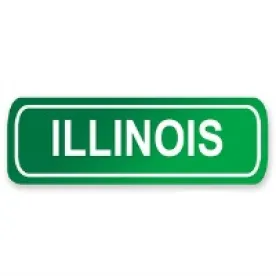Two recent laws in Illinois and Chicago provide employees with unpaid leave for the death of a child or paid leave for an illness. On June 22, 2016, the Chicago City Council passed an ordinance guaranteeing paid sick leave to private sector and City of Chicago employees. On July 29, Governor Bruce Rauner signed the Child Bereavement Leave Act (“CBLA”) into law, which provides unpaid leave to employees who lose a child. The CBLA became effective at the time of its signing, and the Sick Leave Ordinance becomes effective on July 1, 2017.
Child Bereavement Leave Act—What Illinois Employers Need To Know
-
The CBLA applies to all employers in Illinois with 50 or more employees that are also covered by the FMLA.
-
Employees must be employed for at least 12 continuous months and have worked at least 1,250 hours in the previous year to qualify for leave.
-
Employees may take up to 10 days of unpaid leave to attend a child’s funeral or memorial service, grieve a child’s death, or make necessary arrangements. Employees may substitute existing paid or unpaid leave for bereavement leave. Vacation time, sick time, or other leave (including under the Sick Leave Ordinance) may be substituted. If more than one child dies within a 12 month period, employees are eligible for a total of 6 weeks of bereavement leave to be taken within a year. Employees may not exceed the 12 week amount of leave permitted by the FMLA.
-
Employers may ask for verification of an employee’s leave request by requiring the employee to submit documents such as a published obituary or death certificate.
-
Employees must provide 48 hours’ notice prior to taking leave unless impracticable. Leave must be completed within 60 days of notice.
-
Prohibits denying leave, taking an adverse action against an employee taking leave or retaliating against an employee.
-
The CBLA permits aggrieved employees a private cause of action for alleged violations. The CBLA does not require exhaustion of administrative remedies — employees can file a lawsuit under the Act without filing a complaint with the DOL or any other administrative body.
-
Employers who violate the CBLA may be liable for civil penalties and damages.
Sick Leave Ordinance—What Chicago Employers Need To Know
-
The Sick Leave Ordinance applies to private sector employers who maintain a business in Chicago and the City of Chicago. The ordinance does not apply to state or federal employers.
-
Employees must work in Chicago for two hours over any two week period to qualify for sick leave. Accrual of sick leave begins on day one of employment, but employers may prohibit new employees from using sick leave for a probationary period of 180 days.
-
Employees may use up to 40 hours of paid leave for a sick day, to care for a sick family member, to visit the doctor, to take a family member to the doctor, to recover from domestic violence, or if the employer or child’s school is closed due to a public health emergency.
-
If an employee is absent for more than three days in a row, employers may require documentation (such as a signed doctor’s note or police report) certifying that the paid sick leave was authorized.
-
Employees must provide up to seven days’ notice prior to taking leave if foreseeable.
-
The ordinance prohibits denying leave, taking an adverse action against an employee taking leave (including counting paid sick leave as an absence triggering discipline) or retaliating against an employee (including delaying payment while awaiting verification documents).
-
Employers must provide employees notice of their right to paid sick leave with the first paycheck and must post a notice of this right in a conspicuous place.
-
The Ordinance permits aggrieved employees a private cause of action for alleged violations, and it doesn’t require employees to exhaust administrative remedies.
-
Under the Sick Leave Ordinance, employees may seek treble damages and attorney’s fees.
Recommendations for Compliance Under the CBLA and Sick Leave Ordinance
Given the changing leave landscape, Illinois and Chicago employers should revisit employee handbooks and train supervisors on the requirements and obligations under the new laws. Employers doing business in Chicago should prepare for increased absences and update sick leave policies to ensure compliance by July of 2017.


 />i
/>i

